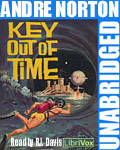
“It’s sci fi. It’s short. It’s stories. Done!”
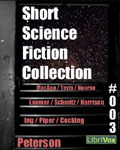 Short Science Fiction Collection Vol. 003
Short Science Fiction Collection Vol. 003
By various; Read by various
10 Zipped MP3s or Podcast – Approx. 5 Hours 45 Minutes [UNABRIDGED]
Publisher: LibriVox.org
Published: February 2008
This is the third volume of reader-selected short stories originally published between 1941 and 1963, that entered the US public domain when their copyright was not renewed.
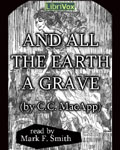 And All the Earth a Grave
And All the Earth a Grave
By C.C. MacApp; Read by Mark F. Smith
1 |MP3| – Approx. 17 Minutes [UNABRIDGED]
Publisher: LibriVox.org
Published: February 2008
From Galaxy Science Fiction, December 1963. There’s nothing wrong with dying—it just hasn’t ever had the proper sales pitch!
The Big Bounce
By Walter S. Tevis; Read by Jerome Lawsen
1 |MP3| – Approx. 20 Minutes [UNABRIDGED]
The Dark Door
By Alan E. Nourse; Read by Bruce Bell-Myers
1 |MP3| – Approx. 49 Minutes [UNABRIDGED]
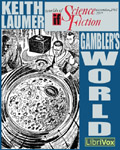 Gambler’s World
Gambler’s World
By Keith Laumer; Read by Mark F. Smith
1 |MP3| – Approx. 55 Minutes [UNABRIDGED]
Publisher: LibriVox.org
Published: February 2008
This is one of Laumer’s “Retief” tales. Starring Jame Retief, the main character in a series of satirical adventures detailing the Corps Diplomatique Terrestrienne and their interaction with alien cultures. This tale was first published in the Worlds of If’s November 1961 issue.
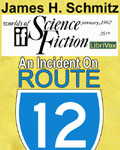 An Incident On Route 12
An Incident On Route 12
By James H. Schmitz; Read by Grumpy Old Squid
1 |MP3| – Approx. 12 Minutes [UNABRIDGED]
Publisher: LibriVox.org
Published: February 2008
First published in the pages of the January 1962 issue of Worlds of If magazine.
The Repairman
By Harry Harrison; Read by Taras Shuper
1 |MP3| – Approx. 30 Minutes [UNABRIDGED]
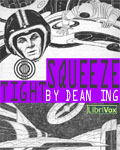 Tight Squeeze
Tight Squeeze
By Dean Ing; Read by Jerome Lawsen
1 |MP3| – Approx. 35 Minutes [UNABRIDGED]
He knew the theory of repairing the gizmo all right. He had that nicely taped. But there was the little matter of threading a wire through a too-small hole while under zero-g, and working in a spacesuit! From Astounding Science Fiction February 1955.
Time and Time Again
By H. Beam Piper; Read by R. J. Davis
1 |MP3| – Approx. 49 Minutes [UNABRIDGED]
Warning from the Stars
By Ron Cocking; Read by R. J. Davis
1 |MP3| – Approx. 45 Minutes [UNABRIDGED]
The White Feather Hex
By Don Peterson; Read by Karen Wolfer
1 |MP3| – Approx. 33 Minutes [UNABRIDGED]
Subscribe to the podcast version via this url:
http://librivox.org/bookfeeds/short-science-fiction-collection-vol-003.xml
Go back and get Volume #001 and Volume #002 too!
Posted by Jesse Willis

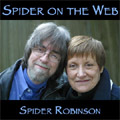 The Spider On The Web podcast (which is SF author Spider Robinson’s podcast) features two of his short stories that were collected in his short story collection User Friendly. The tales are…
The Spider On The Web podcast (which is SF author Spider Robinson’s podcast) features two of his short stories that were collected in his short story collection User Friendly. The tales are…








